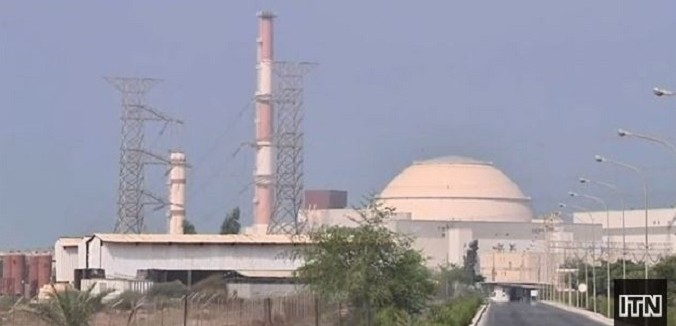The head of Iran’s atomic energy agency said Friday that Tehran will push ahead with its atomic program and continue enriching uranium in the aftermath of the election of Hassan Rouhani, a revolutionary cleric linked to Iran’s conservative pragmatist camp, as Iran’s next president. Fereydoun Abbasi-Davani told reporters at a nuclear energy conference in Russia that work at Iran’s once-secret underground nuclear enrichment bunker – which the West has demanded Tehran close without success – would continue:
Asked whether there would be any change in Iranian policy after Rouhani’s election and whether it could suspend 20 percent enrichment, Abbasi-Davani said Iran’s nuclear program was aimed at producing electricity and medical isotopes only.
“In line with these two goals of course the production of energy will not stop,” he said. Fordow is under the monitoring of the U.N.’s International Atomic Energy Agency, he said. “We will of course continue our work at this centre.”
Abbasi-Davani’s comments echo those made earlier this week by a member of the Iranian parliament’s National Security and Foreign Policy Commission foreclosing the possibility that Rouhani’s administration would agree to suspend uranium enrichment in talks with the West as demanded by five United Nations Security Council Resolutions.
In fact, Iran has been remarkably consistent, and Abbasi-Davani’s remarks are also in line with a post-election speech by Iranian Brigadier General Mohammad Reza Naqdi rejecting compromise with the United States. Naqdi is the head of the feared “Basij Militia,” the paramilitary force of the Islamic Republic controlled by the Supreme Leader Ali Khamenei, who appointed Naqdi to the post in 2009.
Iran’s diplomatic posture is dictated by the country’s Supreme Leader, who during the election preemptively prohibited the eventual winner from making concessions to the West.
The pace and consistency of post-election Iranian comments emphasizing Iran’s unwillingness to compromise on its nuclear program align poorly with some foreign policy analysis suggesting that Rouhani’s election has somehow dramatically boosted the possibility of securing a diplomatic solution to the Iranian nuclear crisis.
Perhaps underscoring Iran’s determination, Abbasi-Davani also indicated that Iran’s Russian-built Bushehr reactor has been brought back online after months of inactivity. Tehran is also raising alarm with its plutonium enrichment work.
[Photo: ITN / Youtube]




